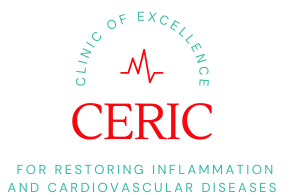Stress has become an almost constant companion in modern life. From work deadlines to financial worries and family responsibilities, the pressures we face can weigh heavily on both mind and body. While most people understand that stress can cause headaches, tension, or fatigue, fewer recognize its deep impact on cardiovascular health.
Research increasingly shows that unmanaged stress is not just an emotional issue—it is a major risk factor for heart disease. Understanding the connection between stress and heart health and exploring ways to manage it can make a significant difference in overall well-being.
How Stress Affects the Heart
When the body encounters a stressful situation, it activates the “fight-or-flight” response. This leads to a surge of hormones such as adrenaline and cortisol, which increase heart rate, elevate blood pressure, and narrow blood vessels.
While this reaction is beneficial in short bursts, chronic or repeated stress keeps the body in a constant state of alertness. Over time, this sustained activation puts pressure on the cardiovascular system, making the heart and arteries work harder than they should.
Studies show that people who experience long-term stress are more likely to develop hypertension, arterial damage, and irregular heart rhythms. Stress also contributes indirectly to heart disease by encouraging unhealthy coping mechanisms, such as overeating, smoking, excessive alcohol consumption, or physical inactivity.
In many cases, unmanaged stress can worsen the Symptoms of Heart or Valvular Valve Disease, making early recognition and treatment crucial.
The Link Between Stress and Inflammation
Inflammation is one of the body’s defense mechanisms, but when triggered persistently, it can become harmful. Stress stimulates the release of inflammatory markers that damage blood vessels and encourage plaque buildup. This process, known as atherosclerosis, is one of the main causes of heart attacks and strokes.
Chronic stress also disrupts the body’s ability to regulate inflammation effectively, leading to a cycle where stress worsens inflammation, and inflammation worsens stress. For individuals already struggling with Joint Inflammation, unmanaged stress can magnify the body’s inflammatory responses and place additional strain on cardiovascular health.
Stress and Lifestyle Choices
Stress often influences daily decisions in ways that harm heart health. Many people turn to comfort foods high in sugar, salt, and unhealthy fats when overwhelmed, leading to weight gain and increased cholesterol levels. Others may skip exercise due to fatigue or a lack of motivation.
Stress can also interfere with sleep, leaving the body unable to recover properly and further aggravating cardiovascular strain.
Additionally, high stress levels are closely linked to higher rates of smoking and alcohol use. Both habits are proven risk factors for heart disease, compounding the dangers of an already stressed cardiovascular system. By recognizing how stress shapes behavior, individuals can begin to take proactive steps toward healthier coping mechanisms.
Practical Stress Management Techniques for Heart Health
The good news is that stress can be managed effectively through intentional practices. Incorporating stress management into daily life not only improves emotional well-being but also provides measurable benefits for the heart. Some proven approaches include:
1. Physical Activity
Exercise is one of the most effective stress relievers. Activities like brisk walking, cycling, swimming, or yoga reduce cortisol levels and release endorphins, the body’s natural mood enhancers. Even 30 minutes of moderate physical activity most days of the week can significantly lower stress levels and improve cardiovascular function.
2. Mindfulness and Meditation
Mindfulness practices, including deep breathing, meditation, and guided relaxation, train the mind to stay present and reduce anxiety. Regular meditation has been shown to lower blood pressure, decrease heart rate, and reduce overall cardiovascular risk.
3. Adequate Sleep
Prioritizing quality sleep helps the body recover from daily stress and regulate hormone production. Poor sleep increases stress sensitivity and contributes to hypertension, while good sleep strengthens both mental and cardiovascular resilience.
4. Social Connections
Strong social support reduces stress and promotes healthier behaviors. Sharing concerns with friends, family, or support groups can help release tension and provide emotional comfort that lowers cardiovascular strain.
5. Healthy Nutrition
Eating a balanced, anti-inflammatory diet rich in fruits, vegetables, whole grains, lean protein, and healthy fats strengthens the cardiovascular system. Reducing caffeine, sugar, and processed foods helps stabilize mood and energy levels, lowering the likelihood of stress-driven spikes in blood pressure.
6. Time Management and Boundaries
Organizing tasks, setting realistic goals, and learning to say no can dramatically reduce stress. Creating structure in daily life helps prevent overwhelming feelings that contribute to chronic cardiovascular strain.
The Role of Professional Guidance
In some cases, stress may feel unmanageable without external help. Speaking with healthcare professionals, such as doctors, therapists, or counselors, provides valuable support. Cognitive-behavioral therapy, for instance, helps individuals recognize stress triggers and develop healthier coping strategies.
Cardiologists and lifestyle medicine experts can also design personalized heart health plans that integrate stress management into overall treatment.
In clinical settings, relaxation-based therapies and stress reduction programs are increasingly being recommended alongside medication and diet modifications. This holistic approach acknowledges the strong link between mental well-being and cardiovascular function.
Workplace Stress and Heart Health
One of the most significant sources of stress for adults is the workplace. Long hours, tight deadlines, lack of control, and job insecurity create conditions that contribute to chronic stress. Studies consistently show that individuals exposed to high workplace stress are more likely to develop cardiovascular disease, regardless of other risk factors.
Employers can play a role in reducing this risk by promoting healthy work environments. Flexible schedules, wellness programs, and encouraging physical activity during breaks can all support employees’ cardiovascular health.
On an individual level, adopting strategies like taking short breaks, practicing breathing exercises at the desk, and maintaining a clear work-life balance can make a meaningful difference.
Stress Management as Preventive Cardiology
The connection between stress and heart health underscores the need to view stress management as a cornerstone of preventive cardiology. Just as cholesterol levels and blood pressure are monitored, stress levels deserve equal attention.
A comprehensive approach to heart health should not only focus on medical interventions but also include lifestyle adjustments that address the mind-body connection.
When individuals actively integrate stress management practices into their routines, they reduce cardiovascular strain and protect themselves from long-term complications.
Heart health is not just about the physical muscle pumping blood—it is also about the psychological resilience that keeps that muscle strong under pressure

